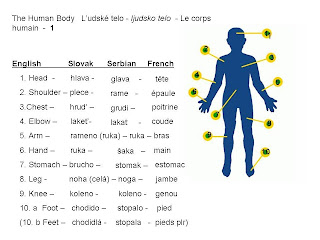Now that you've practised a set of verbs which require the Accusative case, in different tenses and with different nouns ( which you have seen / broken / bought /sold / fixed / turned off / turned on etc.), it's time you did the same exercise, but this time with adjectives.
The topic of adjectives in Serbian is always tricky as they not only agree with the number and gender of the noun, but also with its case. While in some cases, like in the Accusative for example, the case endings are the same for the nouns and adjectives, it's not always that easy ( e.g. in the Genitive case).
That's why we'll stick to the Accusative case today, because we've already practised it and it's easy!
Let's watch the same video and add the following adjectives in front of each noun :
The topic of adjectives in Serbian is always tricky as they not only agree with the number and gender of the noun, but also with its case. While in some cases, like in the Accusative for example, the case endings are the same for the nouns and adjectives, it's not always that easy ( e.g. in the Genitive case).
That's why we'll stick to the Accusative case today, because we've already practised it and it's easy!
Let's watch the same video and add the following adjectives in front of each noun :
- MODERAN = modern
- JEFTIN = cheap
- SKUP = expensive
- VELIKI = big
- MALI = small
- NOVI = new
- STARI = old
- DOBAR = good
For example:
- Kupila sam veliki televizor i malU peglU.
- Htela sam da kupim i modernE lampE, ali bile su previše skupE!
- Na kraju sam kupila jeftinE tosterE. Jedan za mene a jedan za mamu.
As you can see, the Accusative form of the adjectives with nouns denoting inanimate objects is pretty straightforward - it simply agrees with the noun adding the final endings both for the Sg. and Pl. in the same manner as the noun. Let me share with you an exercise based on this blog post and the video (click on the question mark to get a hint which adjective to use).

.png)




























